Our Children • À perdre la raison (2012)
Genre: Drama
Director: Joachim Lafosse
Starring: Émilie Dequenne, Niels Arestrup, Tahar Rahim
Language: French, Arabic
Duration: 111 min.
Summary:
A young mother of four finds herself trapped in an increasingly unhealthy emotional climate.
Our Children, previously known as Loving Without Reason, is a film directed by Joachim Lafosse, from a screenplay co-written with Thomas Bidegain and Matthieu Reynaert, based on a real life 2007 incident in Belgium. It premiered in the Un Certain Regard section of the 2012 Cannes Film Festival, where Émilie Dequenne won the prize for Best Actress. She previously won the Best Actress award in the main competition at Cannes in 1999, for her debut performance in the Dardenne brothers' Palme d'Or winning film Rosetta. It is Belgium's entry to the 85th Academy Awards for Best Foriegn Language Film.
The film abruptly starts at the end, with no details, names, or explanations. Only a harrowing scene of a distraught mother lying in a hospital bed, requesting that her children be buried in their father's homeland of Morocco, followed by the embrace of two men in the corridor, and then an image of four tiny caskets being loaded into an airplane. It's an unsettling way to start a film, one that coincidentally recalls the way Haneke's Amour begins, in that it both disorients and prepares us for a tragic end.
From there, the film flashbacks several years previous, to a happy and joyful time where we witness the passionate courtship of Murielle (Dequenne), a primary schoolteacher and Mounir (Tahar Rahim), a Moroccan immigrant who lives with his adoptive father André (Niels Arestrup). But even here, Lafosse doesn't let go of the film's ominous mood.
The images are drenched with a mostly grey cast natural lighting, and his tightly focused handheld camera is kept at an uncomfortably close distance to the characters. Character's going through their lives in a very simple and realistic way. So that even though the events of these early scenes play out like a storybook romance, the voyeuristic cinematography keeps the audience on edge.
He also employs music in a jarring manner, with a number of recurring strains from Alessandro Scarlatti's baroque operas that underline every key moment, and the surprising but very effective use of Julien Clerc's Femmes je vous aime in one particularly haunting scene.
However, it's the powerhouse acting that really carries this film. Rahim and Arestrup reenact essentially the same father/son dynamic they performed in Jacques Audiard's crime epic A Prophet. Here their characters are more grounded and understated, but just as complex, and their amazing chemistry is perfectly intact. It's also nice to see Arestrup in a role where he's not an outright villain.
Then there's the award winning performance from Dequenne, who manages to not only hold her own against those two heavyweights, but makes us fully believe and feel her gradual spiral into depression, despite being given the weakest written character of the three. We get that she's young and from a poor family but not much else background or clues are provided. So it comes down to her subtle yet extraordinary delivery to flesh out Murielle psychologically and emotionally, and help us relate to her unbearable situation and fragile state of mind. The story may be grim and her character's actions unforgivable, but it's so wonderful to see her truly shine once again. It really is one of the best displays of acting you will see this year, or any year.
Lafosse takes a potentially sensationalistic and overdramatic story from the headlines and crafts a genuinely believable tragic portrait of a family with a light touch. Sometimes the overall pacing feels at odds with the slow and intimate way the individual scenes play out, with lots of sudden jumps forward in time from one scene to the next. The loud and repetitive music also begin to feel a little out of place with the low key dialogue and drama. However, the film's unique and delicately handled perspective on a touchy subject, expert building of tension, and brilliant acting make this an unforgettable watch.
The film abruptly starts at the end, with no details, names, or explanations. Only a harrowing scene of a distraught mother lying in a hospital bed, requesting that her children be buried in their father's homeland of Morocco, followed by the embrace of two men in the corridor, and then an image of four tiny caskets being loaded into an airplane. It's an unsettling way to start a film, one that coincidentally recalls the way Haneke's Amour begins, in that it both disorients and prepares us for a tragic end.
From there, the film flashbacks several years previous, to a happy and joyful time where we witness the passionate courtship of Murielle (Dequenne), a primary schoolteacher and Mounir (Tahar Rahim), a Moroccan immigrant who lives with his adoptive father André (Niels Arestrup). But even here, Lafosse doesn't let go of the film's ominous mood.
The images are drenched with a mostly grey cast natural lighting, and his tightly focused handheld camera is kept at an uncomfortably close distance to the characters. Character's going through their lives in a very simple and realistic way. So that even though the events of these early scenes play out like a storybook romance, the voyeuristic cinematography keeps the audience on edge.
He also employs music in a jarring manner, with a number of recurring strains from Alessandro Scarlatti's baroque operas that underline every key moment, and the surprising but very effective use of Julien Clerc's Femmes je vous aime in one particularly haunting scene.
However, it's the powerhouse acting that really carries this film. Rahim and Arestrup reenact essentially the same father/son dynamic they performed in Jacques Audiard's crime epic A Prophet. Here their characters are more grounded and understated, but just as complex, and their amazing chemistry is perfectly intact. It's also nice to see Arestrup in a role where he's not an outright villain.
Then there's the award winning performance from Dequenne, who manages to not only hold her own against those two heavyweights, but makes us fully believe and feel her gradual spiral into depression, despite being given the weakest written character of the three. We get that she's young and from a poor family but not much else background or clues are provided. So it comes down to her subtle yet extraordinary delivery to flesh out Murielle psychologically and emotionally, and help us relate to her unbearable situation and fragile state of mind. The story may be grim and her character's actions unforgivable, but it's so wonderful to see her truly shine once again. It really is one of the best displays of acting you will see this year, or any year.
Lafosse takes a potentially sensationalistic and overdramatic story from the headlines and crafts a genuinely believable tragic portrait of a family with a light touch. Sometimes the overall pacing feels at odds with the slow and intimate way the individual scenes play out, with lots of sudden jumps forward in time from one scene to the next. The loud and repetitive music also begin to feel a little out of place with the low key dialogue and drama. However, the film's unique and delicately handled perspective on a touchy subject, expert building of tension, and brilliant acting make this an unforgettable watch.
— Bonjour Tristesse









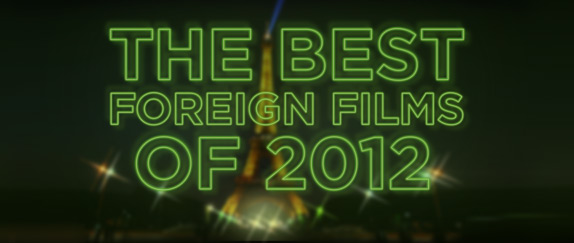

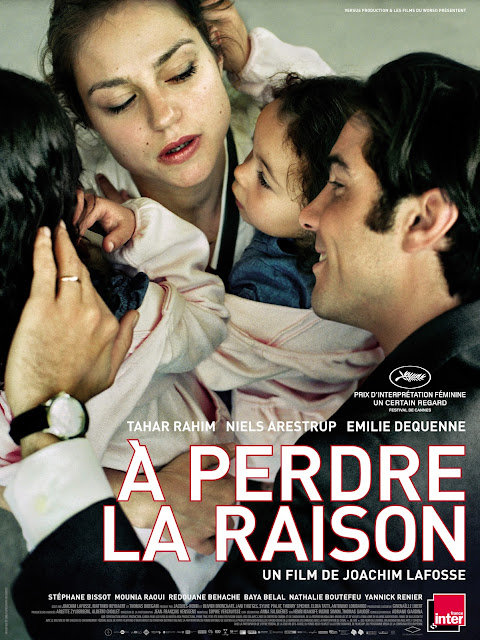



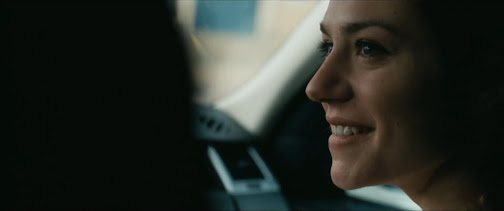

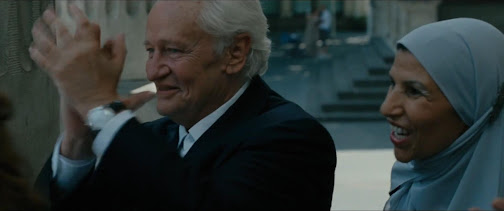




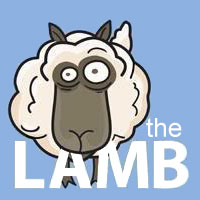




1 comment:
I really do admire good acting.. I love the feelings they can often provide. I was feeling like this one might be too depressing for me to watch at any time, but if Dequenne is really that good I can't hold back from it.
Post a Comment